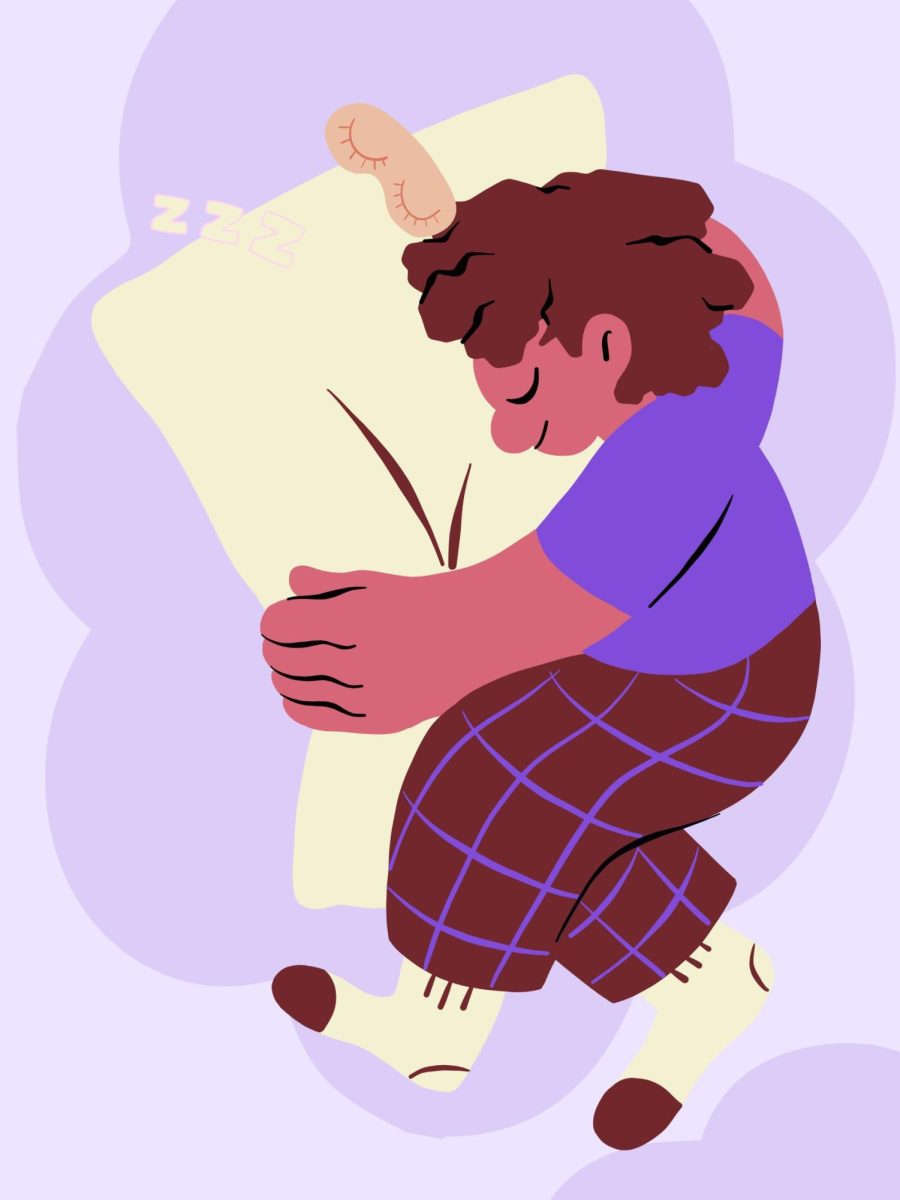As Rowan’s spring semester reaches an end, a swarm of inevitable exams and finals are sure to make any student stressed and on edge. Sleep, however, may play a more important role in the outcome.
Students are notorious for ignoring their eight hours in favor of studying or starting an essay due in less than 24 hours, but this lack of sleep is actually becoming detrimental to not only their performance in school but their mental health as well.
According to a statistic conducted by the National Library of Medicine, during just the week of finals, less than 10 percent of undergraduate students maintain or even come close to the recommended average of eight hours a night or a minimum of seven hours.
This practice of “cramming” before exams and staying up late, hoping that the information they are looking over will be retained the next day, is mostly ineffective and futile. This is shown by a statistic researched by the Department of Psychology at St. Lawrence University, which found that 60 percent of students who “pulled all-nighters” or stayed up all night studying and cramming had lower grade point averages. Sleep-deprived students were also found to be generally worse at completing simple tasks and exerting more effort, as well as performing worse on other class assignments.
This lack of sleep is also drastically affecting students’ mental health. So while we college students may think that avidly staying up all night to finish working will help them in the long run, if this sleep pattern (or lack thereof) continues, it could have long-lasting effects on young adults’ minds.
A report also by the National Library of Medicine on the correlation between college students’ sleep and mental health found that there is a significant connection between sleep and depression. It shows that mental health and the hours of sleep people get around the country are deteriorating.
Despite all of this, it can still be remedied. Procrastination is a major factor in all of this, as many students will push an assignment past its due date or even past it in some cases. Then, the night off, or more realistically, hours before it is due, will frantically try to cram what should have been a week’s worth of work into a single night.
However, just starting assignments earlier, scheduling out your week, and getting to bed earlier will yield results fast. It won’t be a cure-all, but if student slowly start to prioritize their sleep and, to a much deeper extent, their mental health, they will not only perform better in school and their daily lives, but they will feel better.
At Rowan and every college, everyone has a busy schedule, and everyone has responsibilities that fill their days to the brim. College students know this very well. But if students just start to tweak their sleep schedules and stop this cramming epidemic, they may begin to realize that it is not putting sleep or school first but rather putting themselves first.
Students are here at Rowan for their future and to build the skills they need to succeed in life, and if students keep this cycle of pushing work to the last minute, cramming, failing, and repeating, then this pattern will continue well into their adult lives. It would be beneficial to kick into the habit now.
For comments/questions about this story DM us on Instagram @thewhitatrowan or email [email protected]























































































































































!["Working with [Dr. Lynch] is always a learning experience for me. She is a treasure,” said Thomas. - Staff Writer / Kacie Scibilia](https://thewhitonline.com/wp-content/uploads/2025/04/choir-1-1200x694.jpg)












































